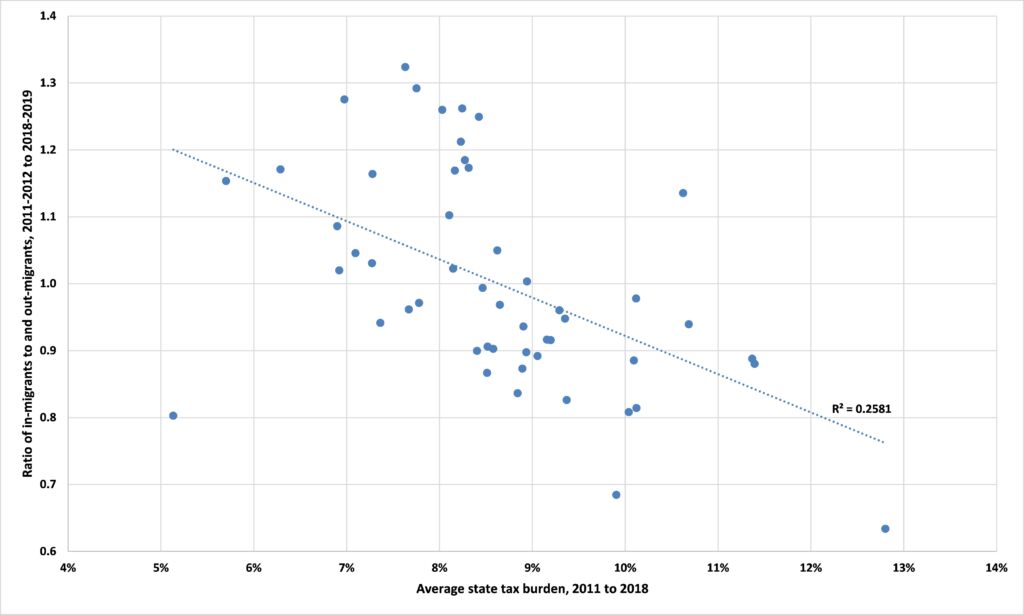If high taxes pay for high quality of life, why are people moving to low-tax states?
A common response when we highlight Minnesota’s high taxes is to say that they are the price we pay for our state’s high quality of life. The data show that this is not true: there is no relationship between higher taxes and better quality of life. But there is a more basic objection to this argument: if high taxes are the price we pay for a high quality of life, why are people moving away from higher tax states and towards lower tax ones?
In our new report, ‘Taxes and Migration Minnesotans on the Move to Lower Tax States,’ we examine the relationship between average tax burdens in the fifty states and District of Columbia over the period 2011 to 2018 and the ratio of domestic in-migrants to out-migrants from each of the fifty states and District of Columbia over the period 2011-2012 to 2018-2019. A ratio above 1.0 means that the state gained residents on net and a ratio below 1.0 means that the state lost residents on net.
Figure 1 shows this relationship. Consistent with the existing literature, we see a negative relationship between the tax burden in a state and the ratio of in-migrants to out-migrants: in other words, the higher the state’s tax burden the greater, on average, the ratio of out-migrants to in-migrants. Put more simply, again, the lower (higher) the tax burden in the state the greater its migration gain (loss).
Figure 1: Tax burdens and net migration rates

Source: Center of the American Experiment
The data indicate a highly significant relationship between state tax burdens and
migration patterns, with a p-value of 0.000. For the data in Figure 1, the R2 is 0.2581, meaning that 25.8 percent of the variation in migration ratios can be attributed to variations in state tax burdens.
Even if you think the data is wrong and that higher taxes do lead to a higher quality of life, you have to ask why, when people vote with their feet, they generally vote for lower taxes? Presumably they are not on the hunt for a lower quality of life.